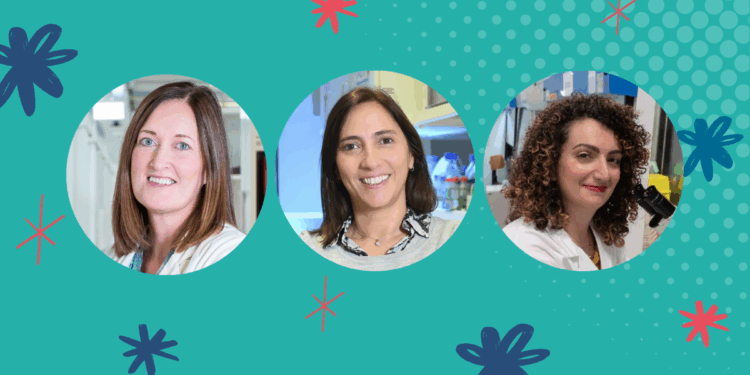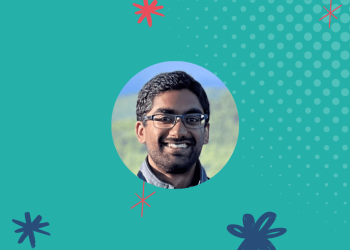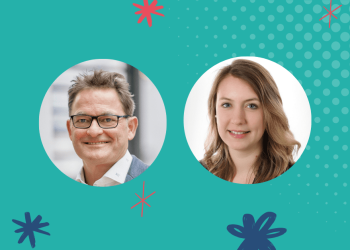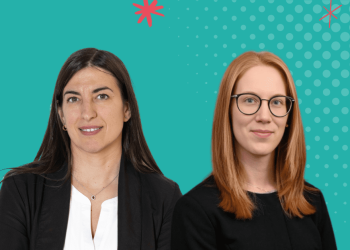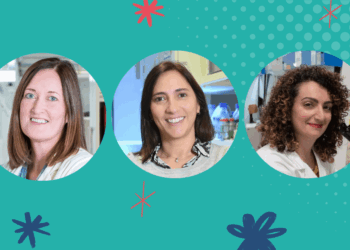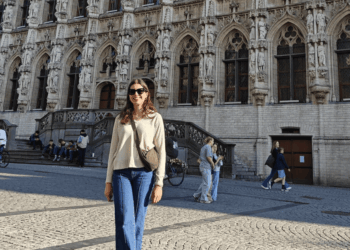In this episode, we go behind the scenes of the Annual Congress of the European Association for Cancer Research, a four day congress dedicated to basic, preclinical and translational cancer research across a wide breadth of topics. It highlights the latest research and brings together the cancer research community to inspire innovation and build knowledge, connections, and collaborations.
Our guests in this episode:
- Johanna Joyce, Professor at the University of Lausanne, Switzerland, and President-Elect of the EACR.
- Joana Paredes, Group Leader at I3S, Affiliated Professor at the University of Porto, Portugal, and President of the Portuguese Association for Cancer Research (ASPIC).
- Mariangela Russo, Assistant Professor at the University of Turin, Italy, and member of the EACR Early Career Researchers’ Council.
Our guests will tell us more about the planning, organisation and impact of the EACR Congress, exploring things such as the role of the Scientific Programme Committee in building the scientific programme and beyond, local impact, opportunities for researchers, and future event planning. Joana Paredes and Mariangela Russo were members of the Scientific Programme Committee this year for EACR 2025 in Lisbon, and Johanna Joyce will be part of the Scientific Programme Committee for EACR 2026 in Budapest. So this conversation is a blend of reflecting on past events, planning for future editions, and ensuring diversity and excellence when choosing the scientific programme.
Listen here, scroll down for the transcript and subscribe now via Spotify, Apple Podcasts, Amazon Music/Audible, Deezer or YouTube so you’ll never miss an episode. You can find all episodes and their transcripts here.
Our host is Dr. Alexandra Boitor, EACR Scientific Manager.
Episode transcript
Alexandra: Before we dive in, I just want to give you a quick heads up that my voice might sound a little rusty today, I’m fighting off a bit of a cold. So apologies in advance if I sound like I’ve been chain smoking cigars. But don’t worry, the guests are here to keep things lively, so let’s jump right into it. I think this is going to be quite an interesting conversation.
So I invited you today as representatives of the Scientific Programme Committee for the EACR Annual Congress: Innovative Cancer Science, to have a chat about the Congress, starting from a reflection over the event we had in June in Lisbon, to what you’ve got planned for next year in Budapest, should you be able to share some teasers with us. My first question to you is, what was your favorite part of the EACR Congress in Lisbon?
Joana Paredes: Actually, my favorite part was that it was in Lisbon, so my country. It’s great when you see that the Portuguese community answer very well to this Congress. So it’s not used to have so many people from Portugal in other editions from the EACR Congress. So that was an important point and my favorite part, maybe it was the joint symposiums that we have between ASPIC, that is the Portuguese Association for Cancer Research, and the EACR. Because actually we could show the research made by four excellent group leaders working in Portuguese centers, from I3S to the Gulbenkian Institute for Molecular Medicine, Champalimaud Foundation. And so this was great and with a lot of participants.
Then we also had the opportunity to give grants for 15 students, 5 postdocs and 10 PhD students. And actually some were selected for oral presentations and also for speed talks. And so it was also great to see that actually by attending there were so many people being selected.
And from a personal point of view, of course, I enjoy the symposium that had some cross-disciplinary research. Namely the tumour innervation symposium, the brain metastases, that are topics that I work with and actually I really enjoy to attend.
Johanna Joyce: For me, I thought all of it was wonderful, including the location in Lisbon. And so I just want to reiterate what Joana said. For all of us coming into Lisbon, the hospitality, the venue, it was just incredible. So thank you very much from all of us to all of you on the local committee too. I really enjoyed the opening session of the Congress. So this is the session with the opening keynote, and that was given by Charlie Swanton from the UK, but also the Pezcoller-EACR award recipients, and this year that was Karin de Visser and Ido Amit. So this was really just a fantastic way to open the Congress in a fully packed auditorium, and that just set the tone for the rest of the meeting.
Alexandra: Before we get into more details, could you please explain to our listeners what does being on an SPC actually involve?
Joana Paredes: Yeah, so it involves some workload, reviewing abstracts that are quite a lot. Planning the sessions thinking about topics to be discussed. Actually it is a key responsibility to select the speakers with scientific excellence of course. Diversity is also central. So, one of the important points was to consider gender balance, also geographical representation, and a fair spread across disciplines to reflect the global cancer research community. So I think those were the main important points that we have to maintain to have an excellent meeting.
Alexandra: Mariangela, if I’m not mistaken, this might have been your first large congress that you’ve been involved in organising. So would you like to tell us how this experience was for you?
Mariangela: Yeah, absolutely. You’re right, that was the first large congress I was involved in as an organiser. It was great. It was great because I had the opportunity to see how such a large congress is conceived, really starting from scratch. So really to think what are the scientific topics that are hot at the moment in the scientific community. How to be sure to represent every single topic from the basic research to the more translational research, to be sure that every single branch of the cancer research is represented in this congress.
Having the opportunity to interact with great researchers that already have experience in this, but also having the opportunity to really discuss with them, which are the hot topic or which are the great researchers, the great scientists, that it is important important to bring to the podium to share the recent results.
So it was great to see how every single moment of the meeting is conceived, is organised, to be sure also that the people can enjoy properly the sessions. It was given a lot of space in the organisation also to the single workshops, to the opportunity of interaction between the researchers.
So you really need to think to many things and before being part of the organisation, probably I took some of them for granted to be honest. But everything is planned in the detail and that is really great to see how this is conceived.
Alexandra: How does it feel to attend a congress or conference that you’ve organised? Is it in any way different from attending any other congress or conference?
Joana Paredes: Yes, I think that it’s completely different. So when you go to a congress that you didn’t organise, you just attend and you just participate as a member. When you organise you are looking for all the details, if everything that you have planned is going as you’ve expected. Of course in this type of congress we have the enormous help of the EACR that make all the organisation, so most organisational details are being done by them.
So you don’t have to think so much about those specific details, but in terms of the scientific planning, I think that of course you have a sense of pride watching the members engage in the sessions that you helped to shape. And it also changes how you network because actually, if you are involved in the organisation, you are a participant and a host at the same time. And of course for the networking, I think that is also a very special thing.
Johanna Joyce: Yeah, I would second all of that. I think when you organise a conference, you obviously feel a great sense of responsibility and it’s almost like, you know, planning a party, right? You want everything to go well and you are concerned about the location, about the weather even. Are people having a good time? Are they enjoying the science? But are they also enjoying the city, the venue. So it’s very, very different. But I think, you know, maybe in part because of that sense of responsibility, when it goes well is fortunately all of our EACR meetings go exceptionally well, it’s very, very satisfying, right? And then you feel really like, okay all the time and effort that we all collectively put into this really paid off. And for me, you know, when we get this anonymous feedback from the participants of both the EACR Congress but also the special conferences that we organise, this is incredibly fulfilling because then you get to really hear what the young researchers in particular felt about the meetings, and that gives you a lot of motivation and enthusiasm to move forward to the next event.
Just as a kind of a side point, we really take that feedback very, very seriously. So I want to kind of put a plug in for giving that feedback. It is all anonymous. It’s really beneficial for us and we can always improve so please do keep sending that.
Alexandra: Thanks Johanna and yes, we do very much appreciate any sort of feedback that we receive and we are doing our best to implement it. From what you’ve been telling me so far, it sounds like organising such a complex event takes quite a bit of time and effort and it can be stressful. I was wondering what is the benefit for the researchers to put in this extra work and effort in organising a congress?
Mariangela: If I can reply to this, I will echo what Joana was saying before – networking. This is one of the best benefits. I’m a young researcher and having the opportunity to participate in the organisation really improves my networking. Having the opportunity to be updated on what are the hot topics at the moment in the field. I will say this is the best benefit ever. It allows you to be known, allows you to be watched. So I was also involved in the organisation of ‘Cancer Researchers to Watch’ as a side event, and we will speak about that later. This is the great opportunity, I will say, the great benefit.
Joana Paredes: I think that I completely agree with everything that Mariangela just said. I think that I would just add, when you are involved in organising, it also gives you a platform to influence the direction of the scientific dialogue in your field of research because actually you are also selecting the speakers and the topics to be presented.
And in that way you can say that some topics that you are most interested in can also be seen. Of course it also expands enormously the network. So, as Mariangela was saying, you start to be seen, as a researcher, as someone in that country doing a specific type of research. And I think that this is the main benefit for researchers that organise.
Alexandra: The EACR Congress moves across Europe every year being located in another major European city. Joana, could you tell us a bit about the local impact of such events and their effect on the local research community? Because this year the Congress was in your home country.
Joana Paredes: Not in my city, that is in Porto. Maybe some year in the future. But actually it’s really important. As I already mentioned, it calls the local research community to the Congress. And of course, as I was telling you, we had six speakers from Portugal. We had a lot of students coming from Portugal. So sometimes the Congress is a bit expensive for the majority of the students working in Portugal. And it’s very difficult to call them to pay the Congress and to have the hotel. So when the Congress is in our country, everything is more easy.
That is an important point of course. The other – it fosters collaborations between local institutions and international partners. It gives the opportunity for the students to speak with experts in their fields. And of course there’s also an economic and cultural benefit for the city when you attract so many people coming from Europe and from the US. So I think that it not only strengthens the research, but also strengthens the culture, the public engagement, the policy of our country, of course.
Alexandra: So congresses offer a lot of opportunities to attendees, from keeping up with the latest developments in the research field, to presenting their work, network, offer some visibility, and to make new, valuable connections in their research field. What is your favorite part when attending a congress or conference and how do you ensure that that aspect is preserved and well represented when you organise one?
Johanna Joyce: Yeah, all of the things that you mentioned Alexandra, are my favourite. If I have to highlight one, I think it’s the opportunities to engage with young researchers. From the posters to the dedicated career sessions that we have at lunchtimes throughout the Congress. I also really appreciate both the topics and the topic leaders that are selected and these are selected by the Early Career Researchers’ Council that Mariangela is a very important part of. They’re just perfect, right? They’re perfectly selected and the topic, it just seems like they really know this person really well, that they ask them to speak about this.
This is wonderful, right? Because you can have very honest conversations with the leaders in the field in a very informal way. I’ve done these for a number of years now and I find it’s really great to talk with the researchers. We continue these discussions for quite some time after we conclude that particular part of the meeting. And many of these young people stay in touch with me and I find that very enriching. This is something that for sure we see as highlight of our annual congress.
Mariangela: If I can add, I totally agree with you. Probably the part that I enjoy the most in the organisation of the meeting is this part because thinking the right question to ask to the leaders and really thinking to what’s the best question, because these are all questions that I would like to ask to them.
And having the opportunity to allow younger people to have these small groups and interact in an informal way with the leaders, I guess it’s amazing. And then the best part that I always enjoy in attending meetings, especially when they are big meetings, is the poster session. Because I really feel that during the poster session people feel a little bit less worried even in asking questions. Young attendees such as PhD students or young postdocs sometimes really feel scared to ask questions during the talk, especially during the plenary session, while when they are at the poster session, they’re really free in brainstorming about the science.
So I really feel that during the poster session you really breathe, I will say, the proper scientific discussion because everybody feel free in brainstorming. And I really think that this is the best part of a meeting, especially when they are big meetings like EACR is.
Alexandra: The EACR Congress, as you’ve mentioned, is one of the biggest events in cancer research, and it’s still growing. In addition to the scientific symposia, as you’ve highlighted earlier, early career researchers have the opportunity to network with legends in the field through meet the expert and career discovery sessions.
In the past couple of years, we also added a couple of satellite events – the Women in Leadership Workshop, which is aiming to empower women in cancer research to excel as leaders by enhancing their skills and confidence to succeed in the context of a still male-dominated scientific environment, I would say.
We also added Cancer Researchers to Watch, an early career showcase, aiming to improve the opportunity for early career researchers to present their work and connect with peers at a similar career level. What is your opinion on the congress sessions branching out and do you plan to continue these events in 2026 or add new ones to the list?
Mariangela: If I can start, as Johanna was saying before, I’m a proud member of the Early Career Researchers Council of the EACR. And as part of this council, one of the things that we decided to propose to add to the EACR was these satellite events on the cancer researchers to watch. And I really think that this is a great opportunity because obviously when we attend meetings we would like to listen to the leaders of the field, but it’s also true that we need to give space to the younger researchers to share their results and to leave them the podium. And this is a great opportunity for them. So this is a moment dedicated to younger researchers to show up, to share their idea, to share their results, to brainstorm about that. And giving the opportunity, as I was saying before, over even to the youngest, so to the PhD student, to interact during the discussion, to interact during a talk, to ask questions. Don’t be afraid about that. So I’m really proud of the satellite events. It will be kept during the 2026 meeting and I hope that, based on the opinion that we got from the attendees to the meeting, this could eventually be kept also for many future EACR congresses.
Johanna Joyce: Yeah, I would just add to that for specifically the Women in Leadership Workshop. We’ve organised this for two years, this started in 2024. The feedback from the first meeting was that 100% of the attendees would recommend this to somebody else. We also had a fantastic day together for the 2025 Women in Leadership Workshop, and we will most definitely be continuing this into the future.
It’s very important to have the opportunity to come together. Many of the women that come to this workshop are either starting their own labs or preparing to, so it’s not just that they get to ask their questions to the panel of experts, to the keynote speaker, but they also form this network with each other, and that is incredibly powerful. Having a peer network to be able to navigate the inevitable challenges that come up as you start a lab and as you hire students and postdocs and write grants and so on and so forth. So, this is something we’re really very gratified that it’s been so well received. And that it clearly fills a very important need for our community. And the same applies to the Cancer Researchers to Watch. We got tremendous feedback for this too.
I think a lot of what we really tried to do at the EACR, and this will continue, is to create these types of spaces for people to feel comfortable within our community, to feel that they can contribute to our community, that their voices are heard. This is what I think is so special about the EACR. It’s our community. And so we want to do everything we can to serve and to strengthen and to build out our community.
Mariangela: Yeah, I totally agree. That was great.
Joana Paredes: Can I just add something, because I think that one thing that I miss in the EACR is patient perspective and actually this is something that is very well done in the AACR, in the American Association for Cancer Research, that every congress usually have also patients, and some of the sessions to put in words that are more easy to be understandable by patients. And I think that it’s something that maybe we also, in the future, can introduce in our meetings. It’s just an idea that just came out now and I think that was important.
Johanna Joyce: Maybe I could just add two quick points to that Joana. We actually did have patient involvement at the EACR Congress in Turin. We had the founder of KRAS Kickers. She gave a fantastic talk in the opening session of the meeting.
Joana Paredes: I saw, but I think that it’s something that sometimes we have, sometimes we don’t, and maybe we need to strengthen that.
Johanna Joyce: Yeah and if I can add the second point to that, it’s that we have this patient involvement online meeting that we are now organising. And so we very much recognize the value and the voices of patients and the need to incorporate them into our Congress. There’s many different ways that we’re trying out the best way to have everybody be part of the discussion around cancer research and cancer treatment and I expect that we will continue to increase those opportunities as we go forward.
Alexandra: Definitely patient involvement is important and we, at the EACR, also appreciate the importance of patient involvement. I do agree, and we are working on it, we need to find a way in which we could incorporate patients in a way that’s meaningful both for researchers and patients. So it is definitely something to continue to work on and build on what we’ve started.
Finally, I’d like to bring the conversation to the EACR Congress next year in Budapest. Johanna, what themes emerged in Lisbon that you would like to build on in Budapest? And was there anything that you feel was missing?
Johanna Joyce: I think one theme for sure that we’re building upon, and we have a session dedicated to this, is on tumour innervation. And this logically extends from the very successful cancer neuroscience session that we had in Lisbon. This whole field of cancer neuroscience, and now increasingly peripheral cancers and innervation, is just exploding at the moment. It’s a very exciting and very stimulating field, and the EACR absolutely recognizes this. There actually will be a conference dedicated to cancer neuroscience in Bilbao in the coming weeks, and the lineup for that is outstanding also. So that’s one session and one topic that we want to continue to have the leading researchers speak in those sessions.
Another session that I’m very intrigued about is called biological rhythms and their impact on cancer. So this both relates to the physiological rhythms such as menstrual cycle, but also to circadian rhythms. And there’s some very exciting research in these areas too. So those are just two topics that I highlight. I don’t want anyone to be offended that their favorite topic wasn’t included there because I think the entire program is very exciting, very diverse.
What we really try to do at the EACR Congress also is bring in new speakers, right? We try not to have the same speakers every year. This is something that one sees at certain conferences and we think it’s really critical to continuously be bringing in new voices, and that again enriches the scientific community.
Alexandra: Thank you Johanna, for giving us a bit of a taste of what to expect from next year. And thank you everyone for sharing with us your experience in organising the EACR Congress and other conferences and what that means to you.
Enjoyed it? Stay curious with The Cancer Researcher Podcast. Subscribe now via Spotify, Apple Podcasts, Amazon Music/Audible, Deezer or YouTube so you’ll never miss an episode. You can find all episodes and their transcripts here.
Suggest a topic for a future episode: What would you love to learn more about? Click here to give us your topic suggestions in a short online form. We warmly welcome your ideas and input!


